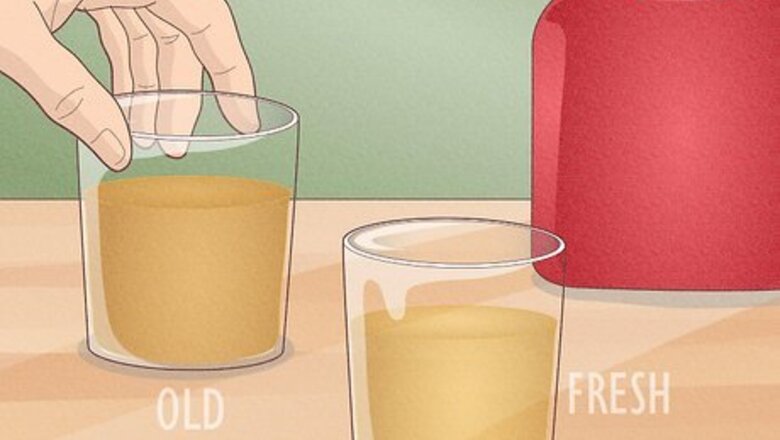
views
- To make old gas usable, mix it with new gas in a 1:3 ratio. Then, pour in a fuel stabilizer.
- Gas goes bad and is no longer usable when it appears dark, murky, and separates into layers.
- Gas lasts about 3 to 6 months when stored in an air-tight container in a cool, dry place.
- Adding a fuel stabilizer to old gas does not make it like-new again. When it’s added to new gas though, it can extend its life to 1-3 years.
Restoring Old Gas
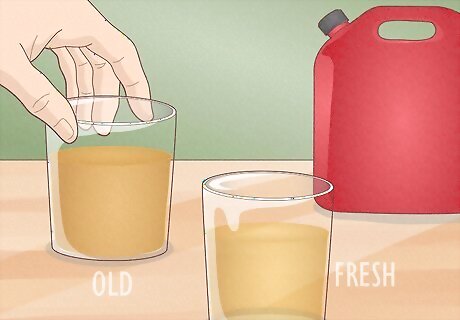
Determine whether your gas is old or contaminated. While old gas can be used in your car, it's unsafe to use bad gas. To check your gas, pour a bit into a clear glass and compare it to some fresh gas. Fresh gas is a transparent and pale gold, while old gas is a slightly darker amber color. Bad gas usually looks even darker, appears muddy or murky, and is separated into distinct layers. Contaminated gas contains debris or sediments; old gas doesn't. Give your old gas a sniff, as well. Bad gas usually smells spoiled or sour.
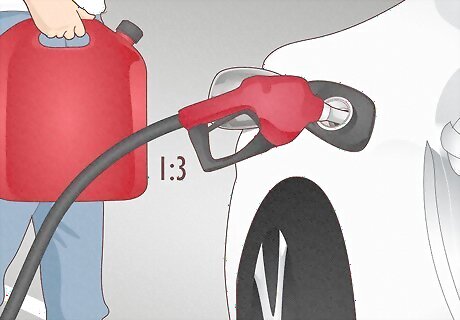
Mix your old gas with new gas in a 1:3 ratio. The best way to make old gas usable is to dilute it with new gas. Simply fill your car’s fuel tank or a storage tank with 3 gallons (11 l) of fresh gas for every 1 gallon (3 l) of old gas you pour in. Then, gently rock your car or shake the storage tank to mix the gas together. Mixing new gas with old gas adds back in the combustive chemicals that evaporated out of the old gas. Even when you dilute old gas with new, it won’t be as powerful as fresh gas on its own. Your car might take a few tries to get started. If your car is full of old gas, drain its fuel tank with a siphon pump. Store the old gas in a tank to use later, or get rid your gas by taking it to your local recycling or waste disposal center.
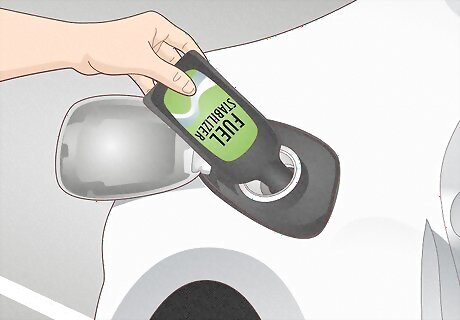
Add a fuel stabilizer to extend the life of your gas. Once your old and new gas is mixed together, just pour in the amount of stabilizer recommended on the bottle to treat the amount of gas in the tank. Fuel stabilizers and additives help prevent the oxidation and evaporation that causes gas to lose its combustibility.
Why does gas go bad over time?
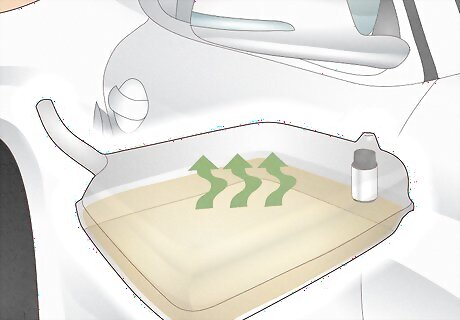
Over time, gas oxidizes and its chemicals start to evaporate. Gasoline is a highly refined product, full of additives and chemicals that give it its ability to combust and power your car. These chemicals break down and evaporate over time, causing gas to lose its potency. Moisture also grows in the fuel tank as time goes by. This causes gas to separate into gasoline, ethanol, and water layers, making it completely unusable. To prevent gas from evaporating and breaking down, fill your tank all the way up. This leaves less room for air in your tank, which means there’s less for the gas to evaporate into. It also leaves less space for moisture to grow.
What will old or contaminated gas do to an engine?
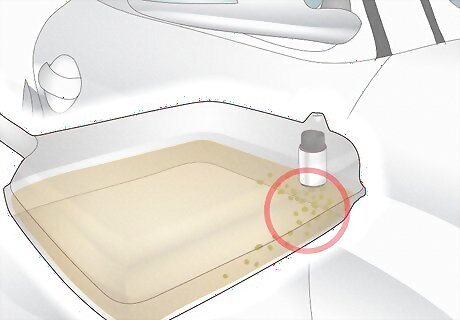
Contaminated gas can clog or corrode your car’s fuel system. As gas breaks down, it gets thick and gummy. Its decomposed state might not have enough power to start your car, but bad gas can create blockages inside the fuel pump and injectors that’s costly to repair. The high amount of water typically found in contaminated gas can also corrode the fuel tank itself. For the most part, old gas just loses some of its ability to combust. When used in your car, it might stall out or have difficulty starting. If you’re looking to dispose of your contaminated gas, don’t throw it down the drain or take it out with the trash. Simply pour it into an air-tight container and take it to your local waste disposal center.
How long can you store gas?
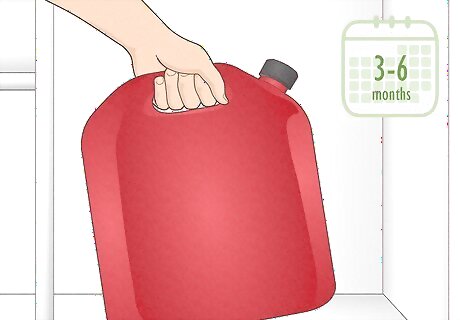
Most gas remains usable for 3 to 6 months when properly stored. In general, ethanol-blended gasoline has a shelf-life of about 3 months, while pure gasoline can last for about 6 months. To store gas and maintain its freshness, fill up an air-tight container all the way and place it in a cool location that receives little humidity. Ethanol evaporates more quickly and is a water-loving substance, which contributes to its faster degradation compared to pure gasoline. Diesel usually stays usable for about 1 year. If you have old diesel, restore it by pouring it through a filter funnel and into a new container. The filter removes water and debris, leaving only good, usable diesel behind.
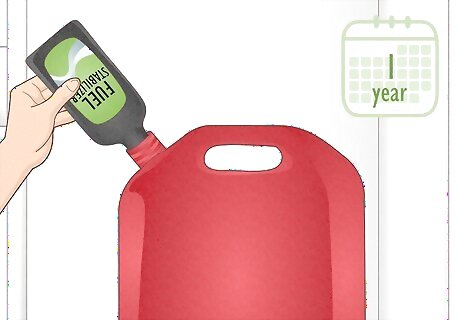
Adding a fuel stabilizer can extend gas’ storage life to about 1 year. When you add a fuel stabilizer or additive to fresh gas, it can stop degradation before it starts. Preventing evaporation and oxidation can make your gas last for 1 to 3 years, depending on the stabilizer you use.
Can fuel additives make old gas like-new?
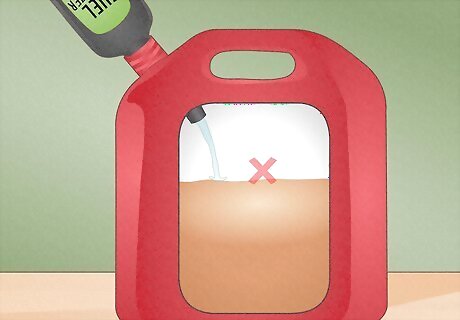
Fuel stabilizers can’t restore old gas to its original quality. Old gas has degraded and lost some of the chemicals that gave it the ability to combust. Unfortunately, these chemicals can’t be added back with a fuel stabilizer. Pouring a stabilizer into old gas can limit further decomposition, though. Fuel stabilizers are best to use in fresh gas because it helps prevent evaporation and oxidation in the first place.

















Comments
0 comment